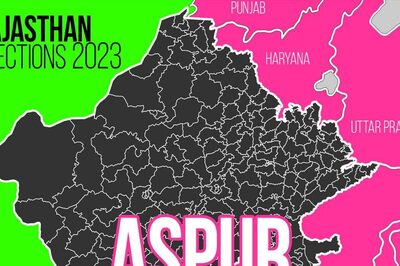
views
Manila: Nileema Mishra, a woman lender to poorest in Maharashtra, and US-trained Indian engineer Harish Hande, who revolutionised use of solar lights, are among six people who have been awarded Asia's prestigious Ramon Magsaysay Award for 2011.
"The two had helped to harness technologies to empower their countrymen and created waves of progressive change across Asia," award foundation president Carmencita T Abella announced.
Filipino charity group Alternative Indigenous Development Foundation, Inc (AIDFI), Hasanain Juaini, who set up an Islamic school for girls in Indonesia, his fellow countrywoman Tri Mumpuni, who promoted micro hydropower technology and Koul Panah, working to restore democracy in Cambodia are the other winners of the award, often described Asia's Nobel prize.
The winners will receive a certificate, a medallion and a cash prize in Manila on August 31. The award is named after famous Philippine president who died in a plane crash in 1957.
Hande was recognised for bringing solar lights to a country, where half the households have no power, the foundation said.
The 44-year-old runs his own solar electric light company that has lit up over 120,000 households, to emerge as India's leading solar technology firm.
"His passionate and pragmatic efforts to put solar power technology in the hands of the poor has encouraged the poor to become asset creators," the foundation said.
Mishra was recognised for "her purpose-driven zeal to work tirelessly with villagers in Maharashtra... To address both their aspirations and their adversities through collective action and heightened confidence."
Among other notable Indians who have been honoured with the coveted award include Acharya Vinoba Bhave, Jayaprakash Narayan, Mother Teresa, Arun Shourie, T N Seshan and Kiran Bedi.
The award aims to honour people who address issues of human development in Asia with courage and creativity.
Each year six people or organisations are named joint winners of the Magsaysay award.
"All are deeply involved in addressing issues that impact human progress not only in their respective countries, but indeed, in all of Asia. They are showing how commitment, competence, and collaborative leadership can truly transform individual lives and galvanize community action," the foundation said.
President Abella saids, "The concerns they are working on are clearly quite diverse-affordable electricity, political reform, inclusive education, economic empowerment, access to water. But there is one thing these Magsasyay laureates share: a greatness of spirit which infuses their leadership for
change. They all build collaboration and seek consensus wherever possible. They all refuse to give up, despite adversity and opposition."



















Comments
0 comment